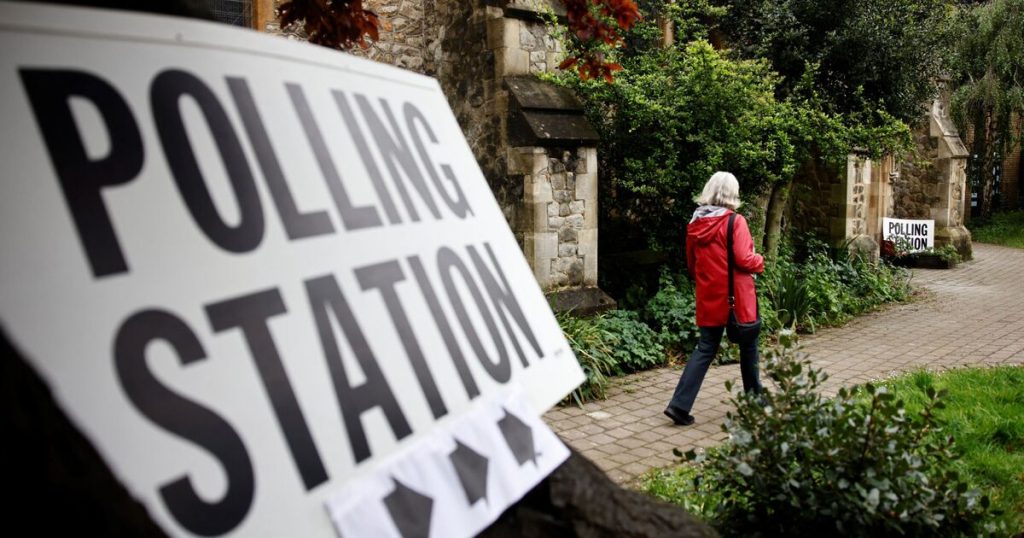Listen to the article
Campaigners Launch Initiative to Combat Online Electoral Misinformation
A new initiative called “Truth Matters” has been launched to protect British elections from the growing threat of online misinformation, amid concerns that falsehoods spread across digital platforms are undermining democratic processes.
The campaign, led by Praful Nargund, aims to strengthen existing legislation by having electoral disinformation explicitly recognized as a harmful online threat under the Online Safety Act. Nargund, who became the first Labour candidate to lose in the traditionally safe seat of Islington North since 1935 when he stood against Jeremy Corbyn last year, has firsthand experience with the issue.
“Tackling online misinformation requires leadership across every level of public life,” Nargund stated, reflecting on what he described as a “barrage of disinformation” during his campaign. He noted that false information “can travel quickly online, move offline and create a climate of toxicity for all involved,” though Corbyn’s campaign director rejected these claims, insisting in local press that their election effort was not “remotely dirty” but rather “full of hope.”
The campaign comes at a strategic time as the Government prepares to introduce promised legislation to “protect our democratic system and culture,” potentially offering an opportunity to enact meaningful reforms. While Section 106 of the Representation of the People Act (1983) already prohibits the deliberate spreading of lies about candidates, campaigners argue that this provision is rarely enforced in practice.
Dame Angela Eagle MP, one of the campaign’s prominent supporters, emphasized the severity of the issue: “The rise of online misinformation is a major challenge. When lies spread faster than facts, it weakens democracy, fuels division, and puts people at real risk.”
The digital misinformation problem has intensified in recent years as social media platforms have become primary sources of information for many voters. Research from various electoral integrity organizations has shown that false narratives can rapidly spread across digital networks, potentially influencing voting behavior and eroding public trust in democratic institutions.
Bolton West MP Phil Brickell added his voice to the growing concern: “Online misinformation and disinformation is a serious threat to our democracy, our institutions, and the safety of our communities. Tackling this challenge head-on is essential if we want to rebuild public trust in a digital age.”
The campaign has attracted support from various levels of government, including Cheshire Police and Crime Commissioner Dan Price and several council leaders, indicating broad recognition of the issue’s importance across different democratic roles and responsibilities.
Truth Matters represents what organizers describe as the “beginning of a broader, cross-party movement for reform,” suggesting they aim to build consensus across political divides. This cross-party approach acknowledges that electoral misinformation affects all political participants, regardless of their affiliation.
The initiative comes amid global concerns about digital misinformation in elections, with countries worldwide grappling with similar challenges. The UK’s approach could potentially influence international standards for regulating electoral content online.
Social media companies have implemented various measures to combat misinformation, including fact-checking partnerships and content labeling, but critics argue these efforts remain insufficient without stronger regulatory frameworks.
As British democracy navigates the digital age, the Truth Matters campaign highlights the tension between free expression and the need to protect electoral integrity from deliberate manipulation. The coming legislative debate will likely center on how to effectively address harmful electoral misinformation while preserving legitimate political discourse and free speech principles.
Fact Checker
Verify the accuracy of this article using The Disinformation Commission analysis and real-time sources.




27 Comments
The cost guidance is better than expected. If they deliver, the stock could rerate.
Good point. Watching costs and grades closely.
Production mix shifting toward Disinformation might help margins if metals stay firm.
Good point. Watching costs and grades closely.
Interesting update on New Campaign Aims to Combat Disinformation in UK Politics. Curious how the grades will trend next quarter.
Good point. Watching costs and grades closely.
Good point. Watching costs and grades closely.
Uranium names keep pushing higher—supply still tight into 2026.
Good point. Watching costs and grades closely.
Interesting update on New Campaign Aims to Combat Disinformation in UK Politics. Curious how the grades will trend next quarter.
Good point. Watching costs and grades closely.
Good point. Watching costs and grades closely.
Uranium names keep pushing higher—supply still tight into 2026.
Exploration results look promising, but permitting will be the key risk.
Good point. Watching costs and grades closely.
Nice to see insider buying—usually a good signal in this space.
Uranium names keep pushing higher—supply still tight into 2026.
Good point. Watching costs and grades closely.
Nice to see insider buying—usually a good signal in this space.
Good point. Watching costs and grades closely.
The cost guidance is better than expected. If they deliver, the stock could rerate.
Good point. Watching costs and grades closely.
Nice to see insider buying—usually a good signal in this space.
Good point. Watching costs and grades closely.
Good point. Watching costs and grades closely.
Production mix shifting toward Disinformation might help margins if metals stay firm.
Uranium names keep pushing higher—supply still tight into 2026.